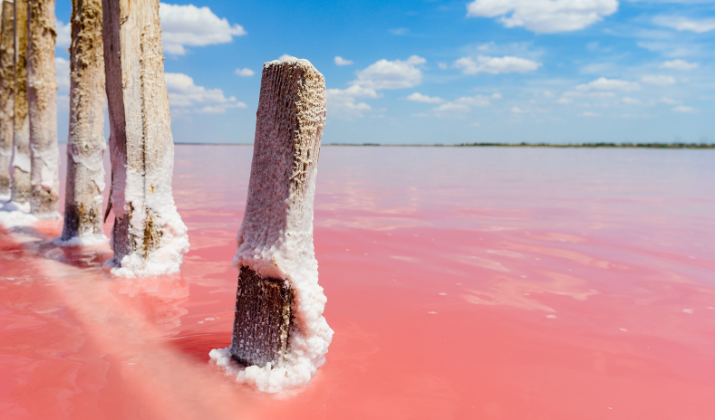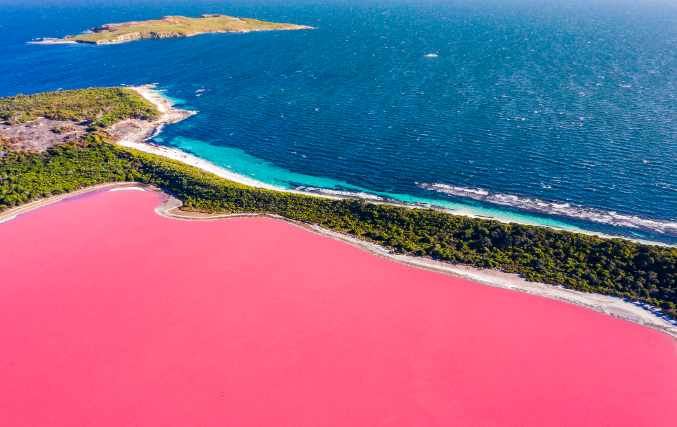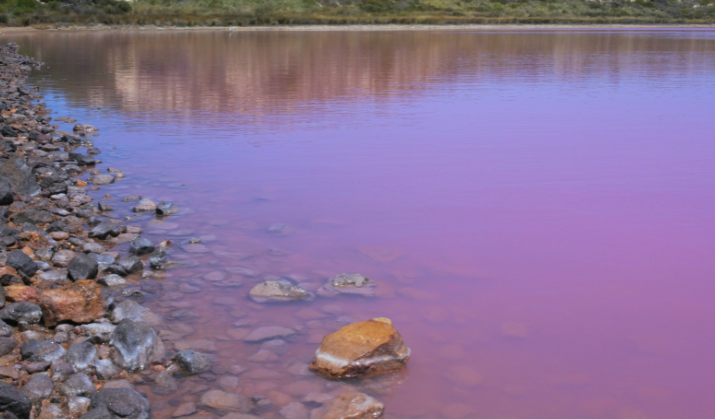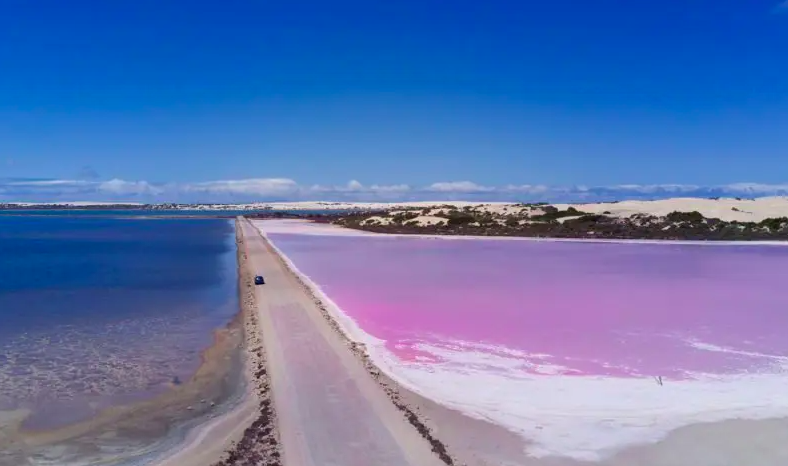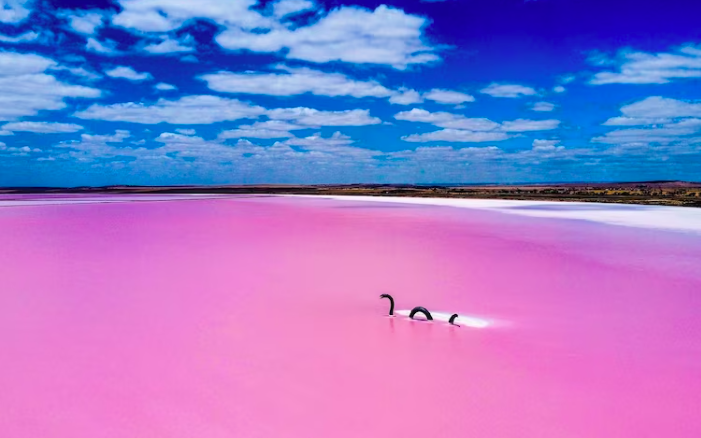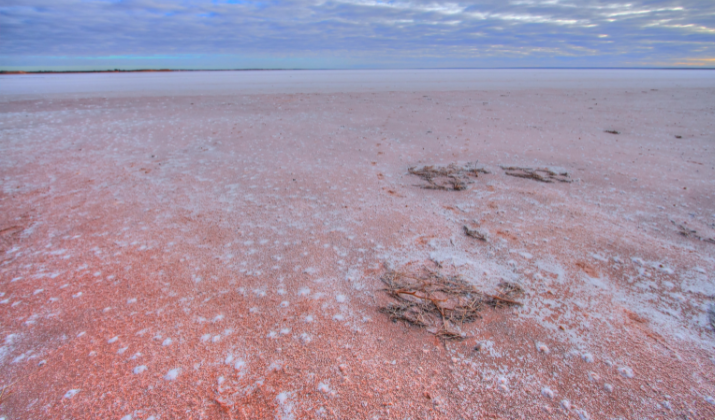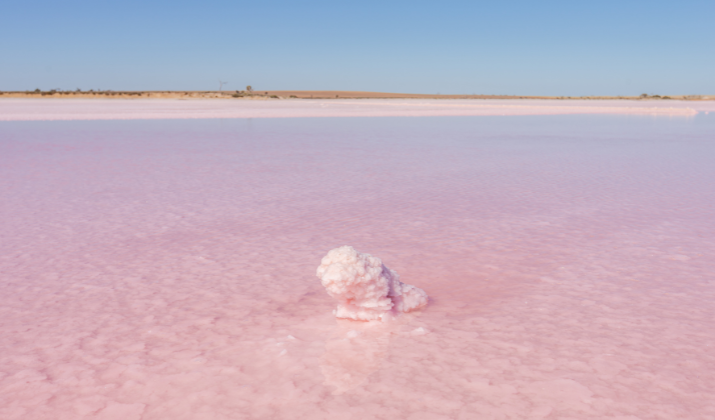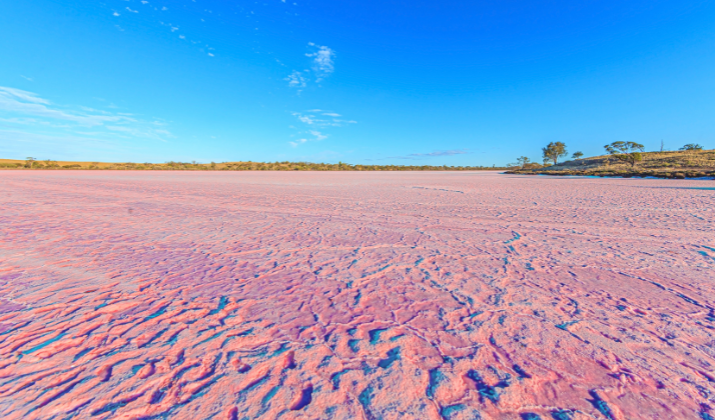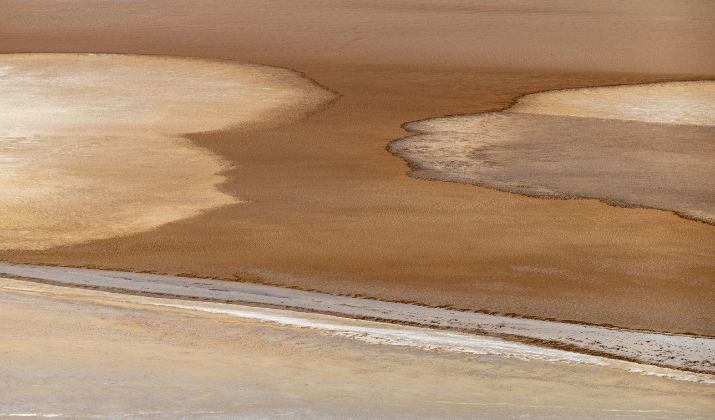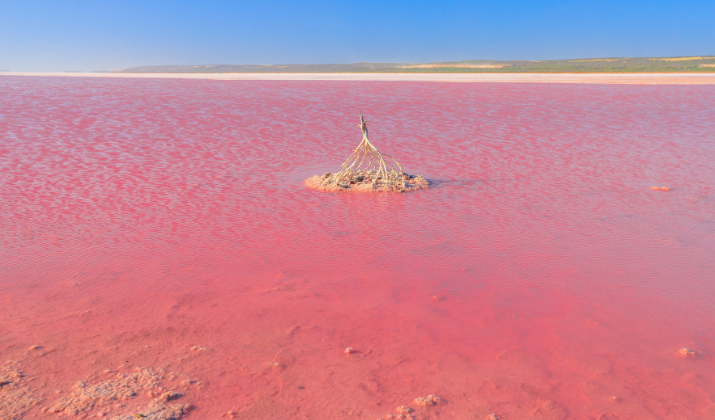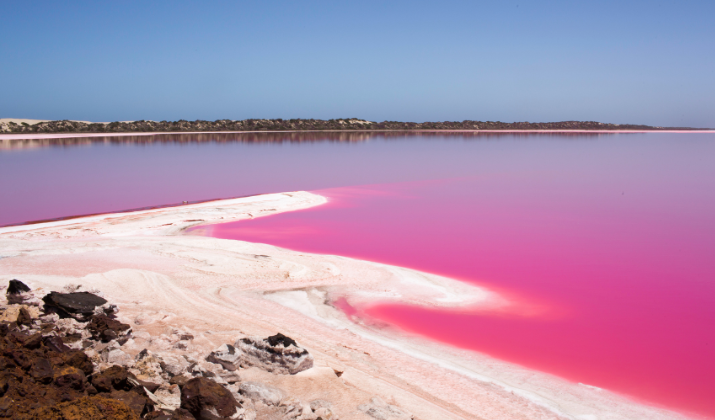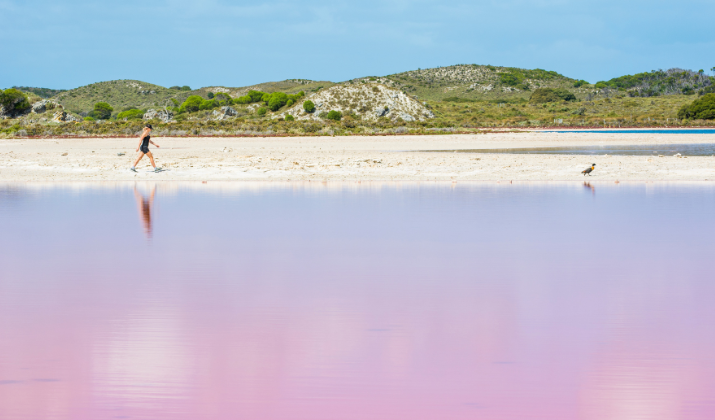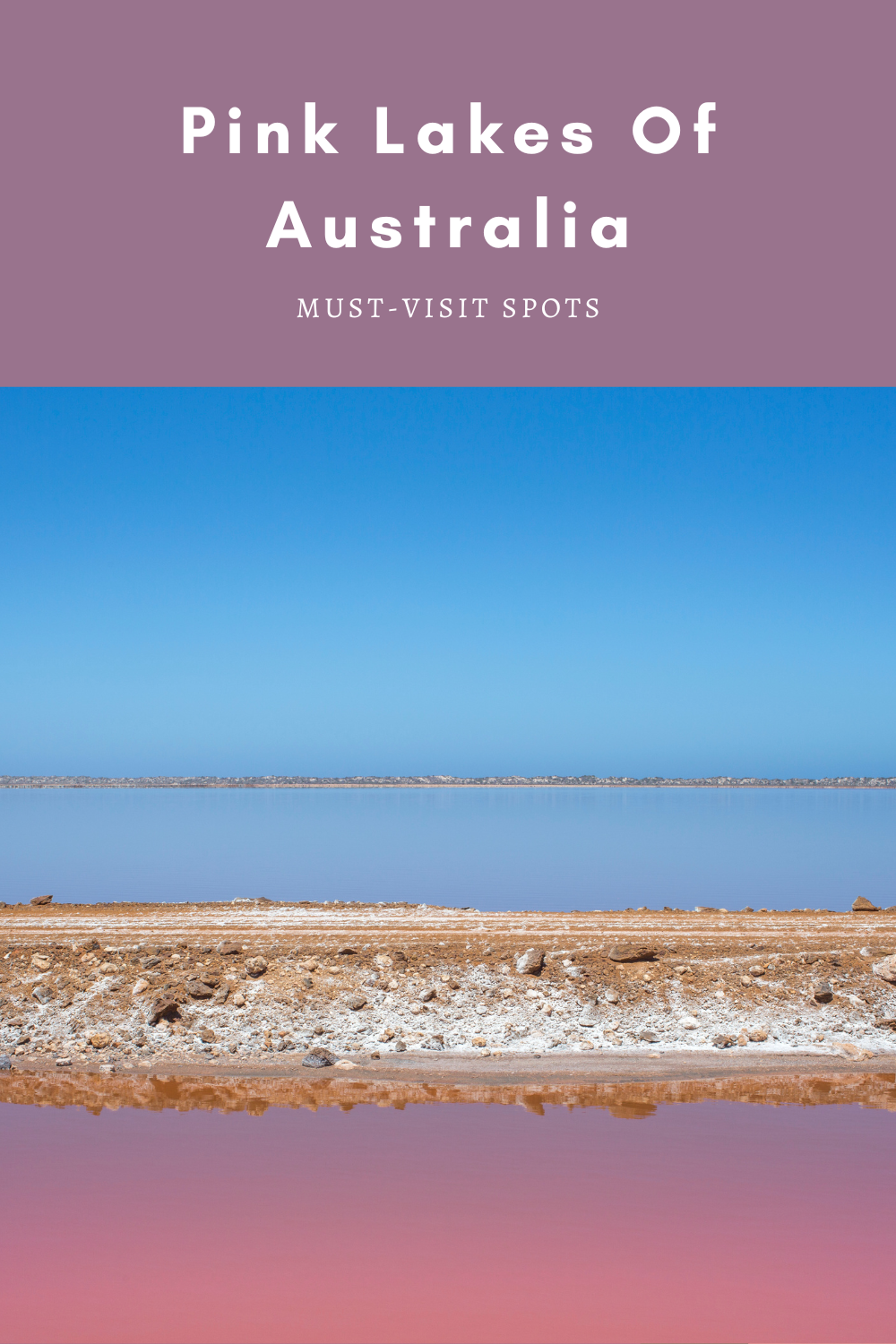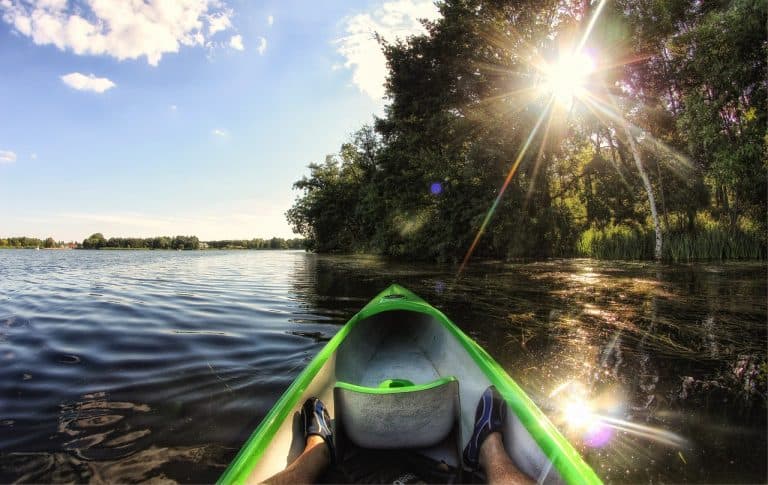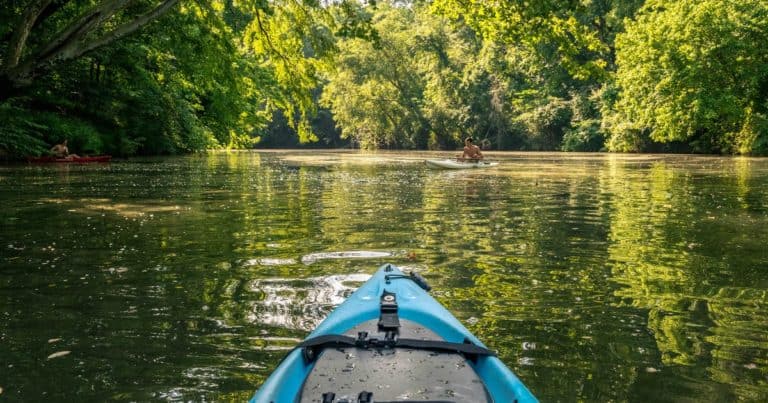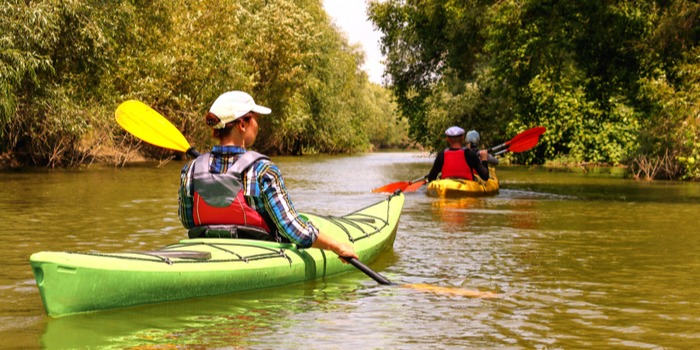Australia’s remarkable landscape harbors some of the world’s most extraordinary natural phenomena – pink lakes.
These mesmerizing bodies of water, painted in hues of rose and salmon by specialized microorganisms, have become increasingly popular destinations for nature enthusiasts and photographers alike.
In this post, I’ll explore some of the must-visit spots in the country where you can experience these pink lakes up close.
By the end of the post, I’m sure you’ll make up your mind to plan your next holiday to one of these locations.
Here’s an in-depth look at ten of Australia’s most spectacular pink lakes.
1. Lake Hillier, Western Australia
Source – GreatBigStory
This iconic pink lake sits like a drop of rose-colored paint on Middle Island, part of the Recherche Archipelago off the coast of Esperance.
Unlike many other pink lakes, Lake Hillier maintains its vibrant bubblegum pink color year-round, regardless of temperature changes.
Location and Access
- Coordinates: 34°5′45″S 123°12′10″E
- Accessible primarily by helicopter or scenic flight from Esperance
- Some cruise ships include it in their southern Australia itineraries
Unique Features
- Approximately 600 meters long and 250 meters wide
- Surrounded by a rim of salt crystals and dense woodland
- Safe for swimming, though permits are required
- Dense salt content makes floating effortless
- Visible from space due to its intense coloration
Best Viewing Experience
- Peak Season: September to April
- Optimal viewing times: 11 AM to 3 PM for strongest colors
- Recommended viewing: Aerial perspective offers the most spectacular views
- Photography tip: Use polarizing filters to capture the true vibrancy
2. Hutt Lagoon, Western Australia
This enormous pink lake spans an impressive 14 kilometers in length, creating a spectacular canvas of color that shifts throughout the day.
Located near Port Gregory, it’s one of Australia’s most accessible and photographed pink lakes.
Location and Access
- Located between Geraldton and Kalbarri
- Accessible by car via Port Gregory Road
- Various viewing platforms available along the shore
Unique Features
- Covers approximately 70 square kilometers
- Home to the world’s largest beta-carotene production facility
- Colors range from bubblegum pink to bright purple
- Contains the highest concentration of carotenoids of any biological source
Best Viewing Experience
- Peak Season: July to September
- Optimal viewing times: Mid-morning or sunset
- Best photography spots: Port Gregory Road lookout points
- Drone photography permitted (check local regulations)
3. Lake MacDonnell, South Australia
Source – Ceduna Online
Nicknamed the “Pink Lake Highway,” Lake MacDonnell offers one of Australia’s most striking visual experiences with its intense pink waters contrasting against adjacent blue-green lakes.
Location and Access
- Located near Penong on the Eyre Peninsula
- Accessible via Point Sinclair Road
- 2WD accessible during dry weather
Unique Features
- Creates a natural color divide with neighboring blue-green waters
- Famous “pink lake road” perfect for photography
- Historically used for salt mining
- Surrounding area rich in wildlife, including kangaroos and emus
Best Viewing Experience
- Peak Season: October to March
- Best photography time: Golden hour (sunrise/sunset)
- Multiple viewing platforms available
- Walking trails along the lake’s edge
4. Lake Bumbunga, South Australia
Source – ABC Net
Known as the “Raspberry Ripple” lake, this easily accessible pink wonder lies just 90 minutes from Adelaide, making it perfect for day trips.
Location and Access
- Located near Lochiel, South Australia
- Accessible via Highway One
- Ample parking and viewing areas available
Unique Features
- Changes color seasonally (pink, white, and blue)
- Working salt mine on site
- Popular fashion and film shooting location
- Excellent reflection photography opportunities
Best Viewing Experience
- Peak Season: February to April
- Morning visits recommended for best light
- Multiple roadside stopping points
- Photography platforms available
5. Lake Hart, South Australia
This massive salt lake offers an other-worldly experience with its vast expanse of pink-tinged salt crust stretching to the horizon.
Location and Access
- Located along Stuart Highway
- Accessible via a purpose-built viewing platform
- Railway siding nearby offers unique photo opportunities
Unique Features
- Spans over 150 square kilometers
- Historic salt mining heritage
- Stunning stargazing location
- Remarkable sunset reflections
Best Viewing Experience
- Peak Season: March to May
- Dawn and dusk offer best photography conditions
- Boardwalk access to lake surface
- Clear nights ideal for astrophotography
6. Lake Tyrrell, Victoria
Victoria’s largest salt lake transforms into a photographer’s paradise during winter months when it becomes a giant mirror reflecting the sky.
Location and Access
- Located near Sea Lake, Victoria
- Accessible via Calder Highway
- Recently upgraded visitor facilities
Unique Features
- Covers approximately 120,000 hectares
- Ancient Indigenous cultural significance
- Famous for sky mirror effect
- Rich bird watching opportunities
Best Viewing Experience
- Peak Season: July to September
- Sunrise and sunset optimal for photography
- New viewing platform with interpretive signs
- Night sky photography popular
7. Pink Lakes, Murray-Sunset National Park, Victoria
This collection of four pink lakes offers visitors multiple opportunities to experience the pink lake phenomenon in one location.
Individual Lakes
- Lake Crosbie
- Largest of the four
- Best sunset viewing
- Camping facilities nearby
- Lake Becking
- Most accessible
- Historical salt mining equipment
- Walking trails
- Lake Kenyon
- Most reliable pink coloration
- Bird watching opportunities
- Photography platforms
- Lake Hardy
- Most remote
- Pristine conditions
- 4WD recommended
Access and Facilities
- Located in northwest Victoria
- 2WD accessible in dry weather
- Camping facilities available
- Interpretive walking trails
Best Viewing Experience
- Peak Season: December to February
- Multiple day visits recommended
- Guided tours available
- Early morning optimal for photography
8. Lake Eyre, South Australia
Australia’s largest salt lake creates a pink spectacle when conditions are perfect, though its color is less reliable than other pink lakes.
Location and Access
- Located in South Australia’s outback
- Scenic flights available from multiple locations
- 4WD required for ground access
Unique Features
- Covers 9,500 square kilometers
- Lowest point in Australia (-15.2m)
- Rare flooding events create spectacular scenes
- Important bird breeding site
Best Viewing Experience
- Peak Season: March to June
- Scenic flights recommended
- Multiple viewing points
- Best after rainfall events
9. Lake Magic, Western Australia
Just 4km north of Hyden, this pink lake offers visitors a unique swimming experience in addition to spectacular views.
Location and Access
- Near Wave Rock tourist site
- Easy 2WD access
- Well-maintained facilities
Unique Features
- Swimming permitted
- High salt concentration for floating
- Natural skin treatment properties
- Picnic facilities available
Best Viewing Experience
- Peak Season: November to March
- Early morning swimming recommended
- Sunset photos popular
- Combined visits with Wave Rock
10. Spencer Lake, Western Australia
This hidden gem near Esperance offers a more secluded pink lake experience away from major tourist routes.
Location and Access
- Located 100km west of Esperance
- 4WD recommended
- Limited facilities
Unique Features
- Less crowded than famous counterparts
- Varying pink intensity
- Rich birdlife
- Pristine surroundings
Best Viewing Experience
- Peak Season: October to December
- Mid-day viewing recommended
- Multiple photography vantage points
- Local guide recommended
Understanding Pink Lakes
Scientific Explanation
The pink color comes from a combination of algae (Dunaliella salina), bacteria (Halobacteria), and high salt concentration.
The Dunaliella salina produces beta-carotene, which gives the lakes their rosy hue, while the Halobacteria create a red pigment that further enhances the pink color.
Conservation Importance
These unique ecosystems:
- Support diverse microorganisms
- Provide essential habitat for birds
- Contribute to scientific research
- Hold cultural significance
Final Words
These remarkable pink lakes are more than just Instagram-worthy locations. They’re vital ecosystems that require our protection.
As responsible tourists, we should stay on marked paths, take all rubbish with us, respect wildlife, follow local guidelines, and support conservation efforts.
Remember, these natural wonders have existed for thousands of years and, with proper care, will continue to amaze future generations.

